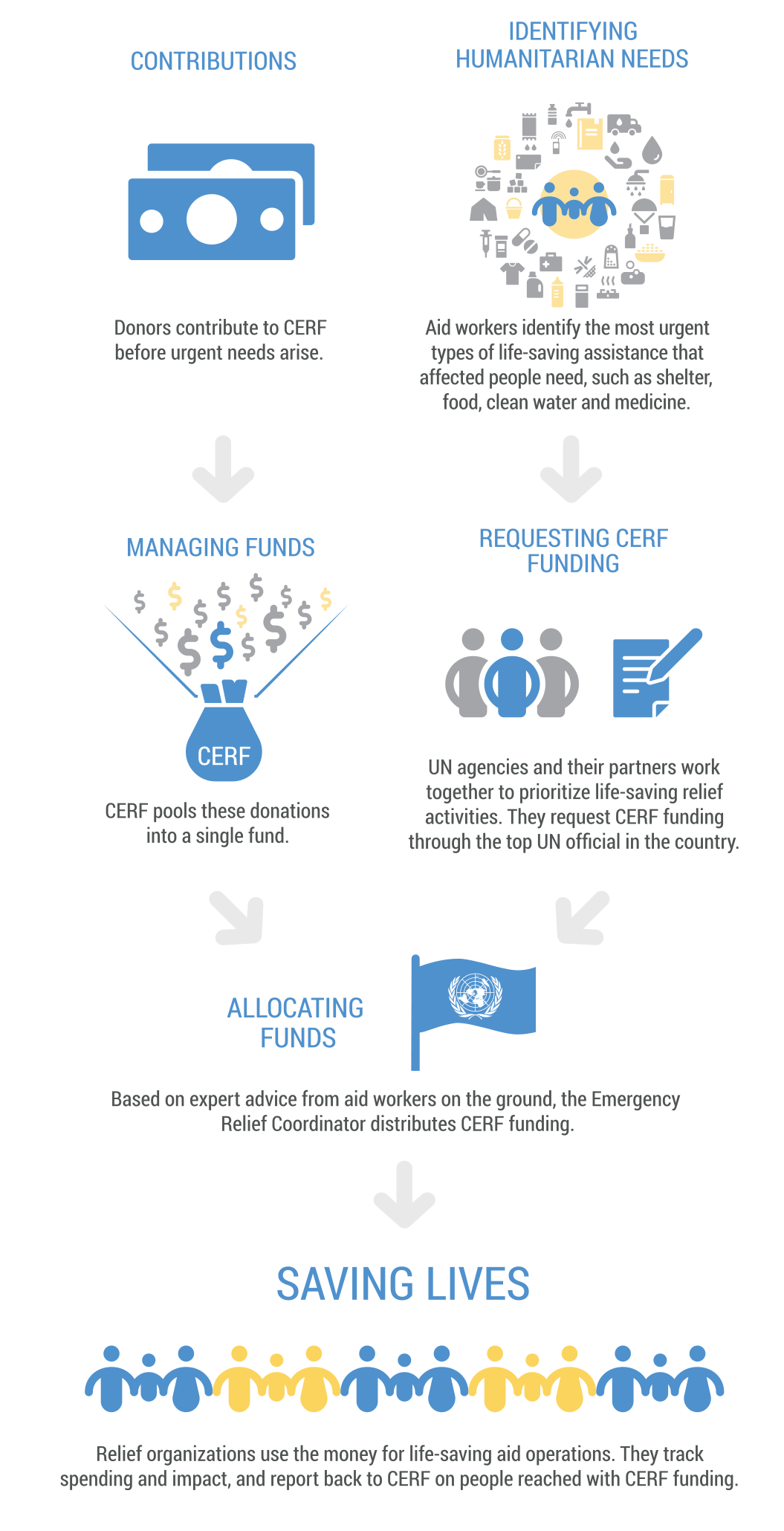3.5 Obtain financing
Health agencies should aim to provide free essential services to affected communities. This usually requires additional funding, for training, material development, procurement of medicines and supplies, salaries and other service delivery costs.
The humanitarian funding process can be slow – from developing and submitting proposals to approval and provision of funds. Health actors and the RMNCAH/CAH working group must be proactive in identifying funding needs and potential donors as soon as possible. Use experienced grant writers whenever possible.
The UN Central Emergency Response Fund (CERF) was established in 2006 to receive and disburse funds for the UN’s global emergency response (Fig. 11). See website for details on how to apply for funding (https://cerf.un.org/).
Key actions – financing
Adapted from the Sphere Health Standards (1)
- The RMNCAH/CAH working group works with partners and the health cluster lead to proactively identify funding needs and potential donors.
- Health service providers are careful to protect affected people from catastrophic health expenditure. Aim to identify and mobilize financial resources that will enable the provision of free health care at the point of delivery to the affected people for the duration of the emergency. Consider both internal organizational funding and external funding opportunities.
- Health service providers aim to abolish or suspend user fees for the duration of the emergency.
- Organizations provide support to government health facilities to cover any financial gaps created by the abolition and/or suspension of user fees.
Key indicators – financing
- Provision of primary health care to the affected people is free of charge at all government and nongovernmental organization facilities for the duration of the humanitarian response.

Fig. 11 UN Central Emergency Relief Fund (CERF)
